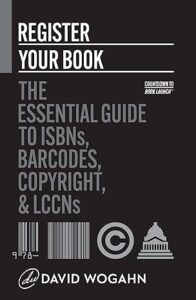How to Use Callous vs. Callus Correctly
English is full of words that sound a lot alike but mean completely different things. It’s easy to get mixed up, especially when two words are almost like twins in how they sound!
Today, we’re going to look at two words that often cause a mix-up:
“Callus” and “Callous.”
They sound super similar, but their meanings are worlds apart. We’ll explore what each word means and how to use them right, so next time you won’t get them twisted.
Let’s get started and learn the difference!
Short answer
“Callus” is a noun. It refers to a toughened area of skin that has become thick and hard, usually because of repeated pressure or friction, like on your hands from playing guitar.
“Callous,” on the other hand, is an adjective. It describes someone who is emotionally hard and unfeeling, not caring about others’ feelings or problems.
So, while “callus” is something you might find on your skin, “callous” is a way to describe someone’s uncaring attitude.
Definition of “Callus”
“Callus” is a noun that describes a thick, hardened area of skin. It forms because of repeated rubbing, pressure, or friction, like from playing a guitar, working out, or even just walking a lot in tight shoes.
10 Ways to Use “Callus” in Daily Life
“I got a callus on my finger from writing so much.”
“These new shoes are giving me a callus on my heel.”
“You can tell she’s a guitarist by the calluses on her fingertips.”
“I need to buy some lotion for the calluses on my hands.”
“My gym workouts are really causing calluses on my palms.”
“Can you recommend a good treatment for foot calluses?”
“Look at this callus – it’s from holding the paintbrush all day.”
“I didn’t realize yoga would give me a callus on my toe.”
“He’s got calluses on his hands from all the gardening.”
“I use a special cream to soften the calluses on my feet.”
Definition of “Callous”
“Callous” is an adjective that describes a lack of sympathy, emotion, or concern for others. It’s used to talk about someone who is emotionally hard, indifferent, or unsympathetic.
How to Use “Callous” in Ordinary Life
“That was a callous thing to say about her situation.”
“He’s known for his callous attitude towards employees.”
“It was callous of them to ignore her when she needed help.”
“The movie’s villain is so callous, not caring about anyone.”
“I can’t believe she was so callous about breaking up.”
“His callous comments about the accident shocked everyone.”
“She has a reputation for being callous in her business dealings.”
“It’s callous to ignore your friends when they’re upset.”
“The book’s main character grows more callous as the story progresses.”
“Their callous disregard for the environment is alarming.”
Practical Tips for Distinguishing Between “Callus” and “Callous”
Let’s look at a comparison table:
This table should help you keep these two commonly confused words straight!
| Aspect | Callus | Callous |
| Part of Speech | Noun | Adjective |
| Meaning | Thickened area of skin | Insensitive, uncaring attitude |
| Cause/Context | Due to friction or pressure | Emotional state or behavior |
| Relation | Physical, related to the body | Emotional, related to feelings |
| Common Usage | In health, sports, or skincare | In describing personality or behavior |
| Visibility | Can be physically seen and felt | A characteristic or mannerism, not physical |
| Connotation | Neutral, more of a physical description | Often negative, describing lack of empathy |
| Typical Discussions | In contexts of physical activities or skincare | In social, psychological, or emotional discussions |
| Example Usage | “My hands have calluses from gardening.” | “Her remarks were surprisingly callous.” |
| Additional Information | Often discussed in terms of treatment or prevention | Refers to an aspect of someone’s character or attitude |
This table should help you quickly identify the differences and use “callus” and “callous” correctly!
“List of Sources to Improve Your Grammar”
If you’re curious to learn more, dive into these fantastic books. They’re not just informative but also super fun and perfect for teenagers. Ready to become a grammar guru? Let’s check them out!
“Grammar for Teens” by Emma Stewart.

This book is perfect for teenagers. It breaks down grammar rules into easy-to-understand chunks. The examples are relatable, and it’s full of fun exercises.
“The Friendly Guide to Grammar” by Alex Parker.

This book makes grammar approachable and enjoyable. It uses humorous examples and simple explanations. Great for beginners and those who want a refresher.
“Keys to Great Writing” by Stephen Wilbers.

This book focuses not just on grammar but also on elements of great writing, including style, clarity, and rhythm. It’s perfect for those looking to enhance their writing skills comprehensively.
“Everyday Grammar Made Easy” by Mike Brown.

This book is ideal for daily use. It explains grammar in the context of everyday situations, making it relevant and practical for teenagers.
“Grammar Adventures” by Lisa Young.

This interactive book turns learning grammar into an adventure. It includes games, puzzles, and challenges to keep learning fun and engaging.
Five amazing books to help you master the art of grammar. Whether you’re just starting or looking to polish your skills, these books are your secret weapon.
Remember, understanding grammar is not just about getting good grades; it’s about expressing yourself clearly and confidently.
So go ahead, pick up one of these gems, and start your grammar adventure today!
Happy reading!
